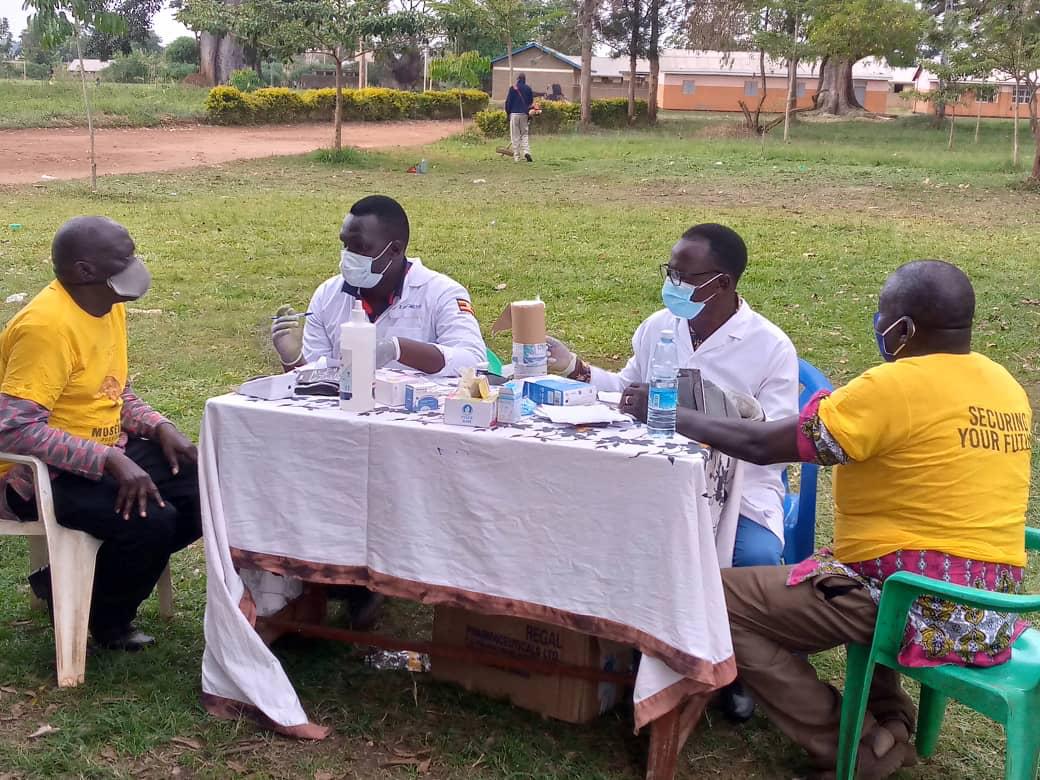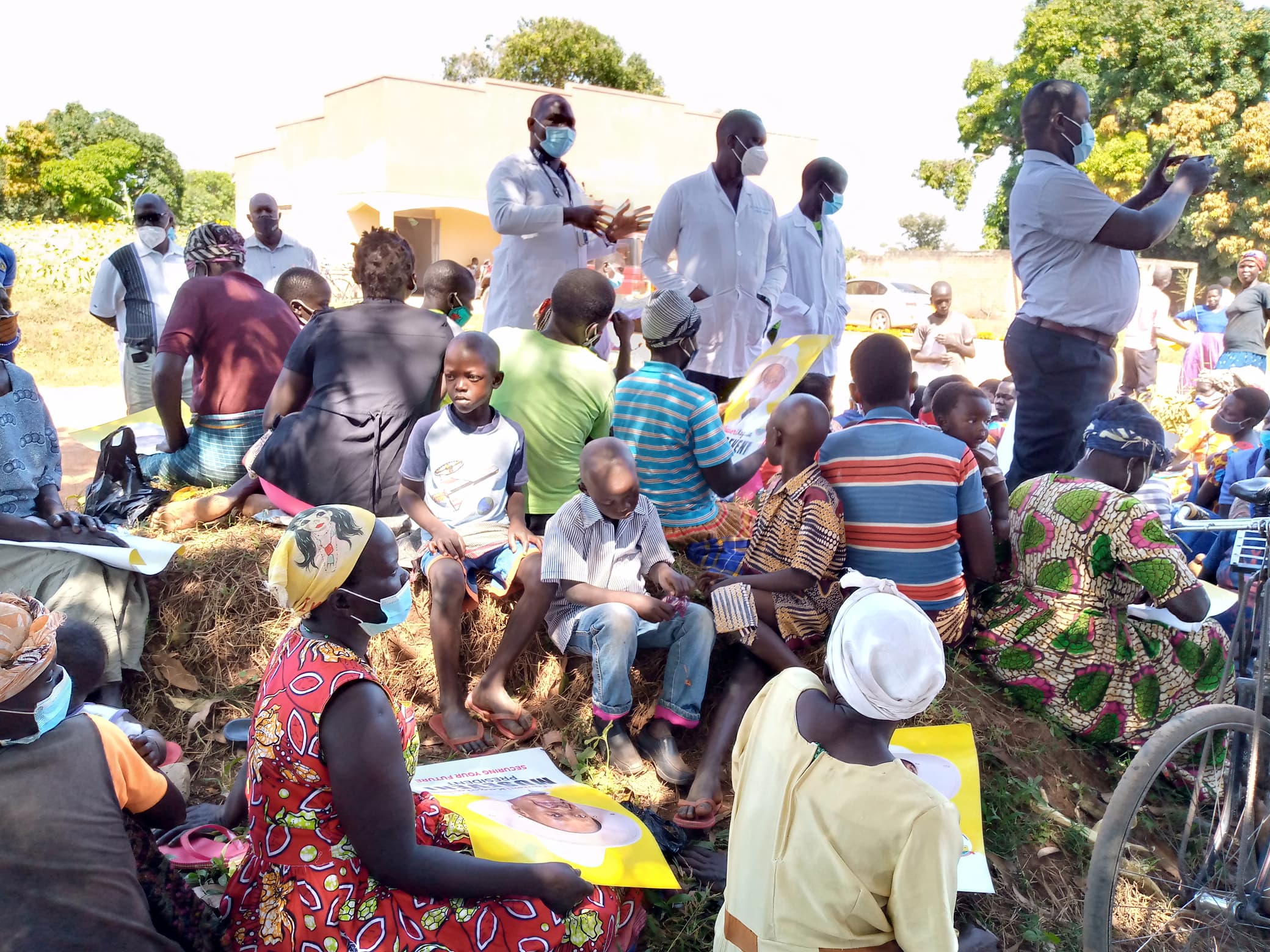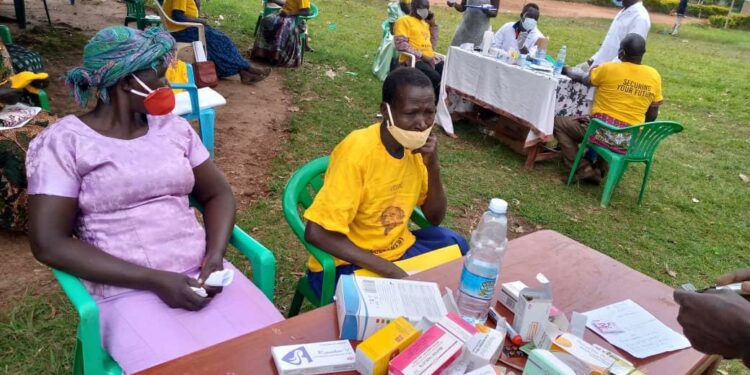A SERIES of studies found that neurons in the portion of the brain associated with a sense of satisfaction start firing when a person chooses to donate money or do something for others.
These results are a fascinating reminder of the intrinsic motivation that many people share to make the world a better place.
And this is in consonance with the philosophy of 19th century Albanian-Indian Catholic nun and founder of the Missionaries of Charity; Mary Teresa Bojaxhiu MC better known as Mother Teresa (1910-1997) who said: “…we know only too well that what we are doing is nothing more than a drop in the ocean. But if the drop were not there, the ocean would be missing something…”

Cognizant of this, a group of youthful zealous and dynamic doctors who benefitted from State House scholarships headed by Dr Samuel Oledo Odongo says the best appreciation they have for President Yoweri Museveni who gave them the opportunity to study and become professionals is to always give back to the citizens.
The team was in Kapyelebyong district where they attended to 1,435 people,Katakwi with 1,218,Alebtong 480 mothers were screened for cervical cancer and Apac where 1840 were scanned for obstetrics and gynecology cases, among others.
With apparent reference to the strict instruction that Jesus gave as he sent out the disciples recorded in St Matthew 10:5-5 which says “…heal the sick, raise the dead, cleanse those who have leprosy, drive out demons, freely you have received, freely give…”,Dr Samuel Oledo Odongo’s team is doing the same.
“…we were freely sponsored by the kind gesture of President Yoweri Museveni whose main interest is to ensure Ugandans lead and live a healthy life to engage in meaningful socio-economic transformation, a core value of the NRM…” he stressed.
He observed that most of the diseases affecting people in the community are preventable if only the population have adequate knowledge and information which promote healthy lifestyles.
Hopeful of becoming the NRM First National Vice chairman next year, Dr Samuel Oledo Odongo says the position will give him an added advantage to do even more for Ugandans in collaboration with key stakeholders and sectors.

What You Need To Know:
Disease burden is the impact of a health problem on a given population, and can be measured using a variety of indicators such as mortality, morbidity or financial cost.
Uganda’s burden of disease is dominated by communicable diseases which account for over 50% of morbidity and mortality.
Malaria, HIV/AIDS, Tuberculosis, diarrheal, lower respiratory tract infections, malnutrition, meningitis, epidemic-prone and vaccine-preventable diseases are the leading causes of illness and death.
According to the Ministry of Health, the overall goal of the health system is to provide accessible, equitable and quality services to the population, in order to promote a healthy and productive life, which is a necessary factor for achieving socio-economic growth and national development.
According to experts, the push towards universal health coverage, including access to AntiRetrovial Therapy (ART) and particular attention to neonatal, child, adolescent and maternal health, is also placing more demands on a system with limited resources.
Do you have a story in your community or an opinion to share with us: Email us at editorial@watchdoguganda.com










